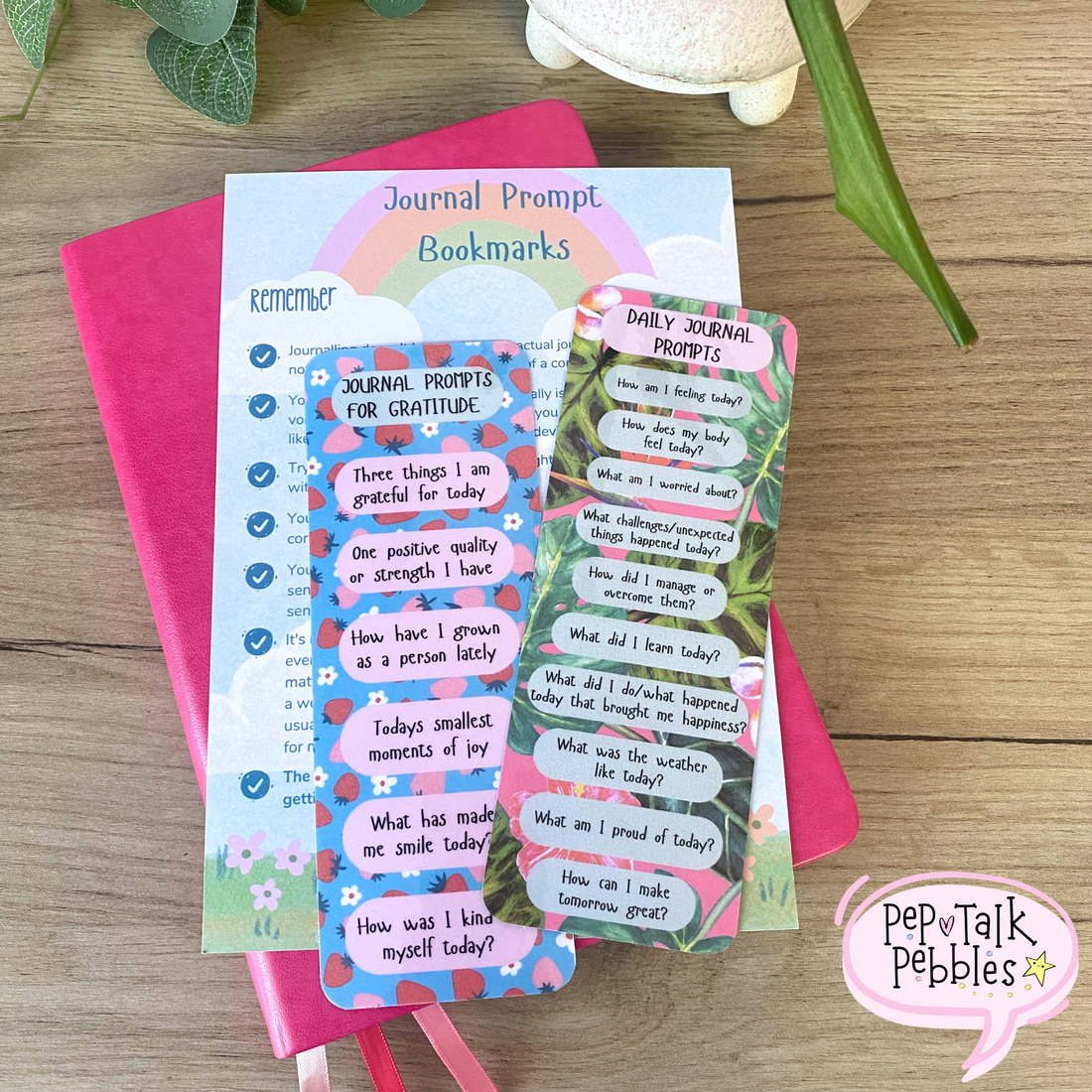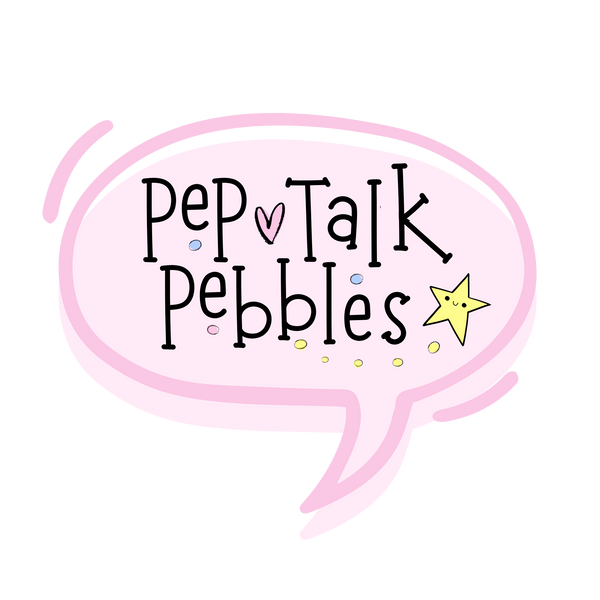
Benefits of journalling and how to get started
Let's look a little closer at the emotional health benefits of journaling
I have journaled since I was 13 years old, and I was writing poems to express my emotional distress, long before that. No body suggested it, no body encouraged it, it was just something I naturally did to cope. I used to write notes or letters to people, instead of verbally communicating with them too. The earliest memory I have of using writing as a form of expression, I would have been around 8 or 9 years old. I would write or draw on a piece of paper from my Nana's wire bound reporters notebook, and then tear it up into the teeniest of pieces so that no body would be able to see it. I find it fascinating that I used to do that without being taught it. Now, as a grown up, with a lot of experience of mental health - both lived and professional - I understand why.Journaling is a powerful tool for nurturing mental well-being, as it offers a myriad of benefits that can positively impact our lives.
Let's take a look at some of the supposed benefits and I'll share, through my own experience of journaling, whether I agree.Emotional expression, sense of relief, self-reflection, clarity, personal growth - I didn't know why I would write so much as a child but as an adult who journaled; a piece of paper, to me, was a safe space to engage in emotional expression. Putting pen to paper enabled me to process complex emotions and untangle the confusing thoughts that plagued my head. It was also a way of processing experiences. In a world that was often confusing, overwhelming and incredibly lonely, journaling was a way of purging emotional distress that I bottled up. And yes, I do feel a sense of relief when I'm able to get it out, especially in the absence of a trusted person to talk to.
Stress reduction and anxiety management - I'll refer back to the purging of thoughts and emotions, I guess the purging of the thoughts that come from stress or tension, would definitely induce a calmer, lighter frame of mind. It's unacceptable to launch a tyraid of abuse at someone or smash up your kitchen because you're pissed off, but those blank pages? Say what ever you like, purge it out princess if it makes you feel better!
On a more serious note, journaling shares some similarities with talking therapies and there is no doubt about feeling less burdened when you have someone to offload to.Emotional regulation and mood boosting - I am going to be really honest here and say, I am really unsure whether my general journaling boosted my mood or 'regulated' my emotions, but I'm sure that is because I have a mood disorder. In fact, during periods of dysphoric mania, I think my journaling may have perpetuated my distress because journaling is one sided. I didn't have anyone to intervene or rationalise.
However, I now have understanding of myself and my condition, which means I now journal more intentionally too, rather than just free-styling. Gratitude is an incredibly powerful thing and I really believe a persons life can change considerably when they learn to appreciate the smallest of things. If mindfulness and gratitude practice isn't a normal pattern of thinking for a person, then gratitude journaling most definitely helps it to become so. Having an outlet for positive experiences, leads to increased feelings of happiness and contentment. Which, we could interpret as mood boosting.Increased self-awareness and goal setting - I agree with this one. Journaling has helped me to gain a deeper understanding of my values, strengths, weaknesses, stressors and patterns of behaviour. Not just from the clarity that comes from journaling, but from the reflection of and re-reading past entries. For someone that really struggles with memory, it is also good for tracking progress and therefore acknowledging achievements. Which in turn boosts self-confidence and motivation to pursue personal growth.
Boosting creativity and mindfulness - errrmmm, I'm unsure about the creativity bit. I'll come to that in a moment. Mindfulness? Yes, 100%. During my journaling, the focus given to events or feelings has surely heightened my sense of awareness around the connection to my thoughts and feelings. Similarly to the bit on gratitude, I think journaling facilitates making that awareness a natural habit of behaviour.
I am creative and always have been, so it's difficult to say whether my journaling has helped that along or not. Would I be as creative if I didn't journal? Who knows. I guess, someone somewhere is more creative because of it, or it wouldn't be a widely claimed benefit. If you feel journaling helps with your creativity, please do let me know!Thought - maybe the fact that I've used writing as a form of expression all of my life, means that I can write more creatively? *scratches head
In summary - If you haven't assumed already, I am a fan of journaling and think it offers a treasure trove of mental health benefits.
But, Em! I can't do it! - Although writing is a love of mine, I know for others, the thought of writing a diary is insurmountable. Or, they consider it but they do not know where or how to start. They may go as far as pick up a pen...but then getting what's in their head actually through the pen on to paper is like hitting a brick wall for many.
You CAN journal and here's a few things to remember.
- Journalling doesn't have to be in an actual journal or a fancy notebook, you can write on the back of a cornflake box if need be.
- You don't even have to write if that really isn't your thing. Why not voice record or use video instead. OR, you can speak into a device, like your phone or laptop and let your device type it up into text.
- Try the pen to paper method, but it might be that you get on better with typing, or visa versa.
- You are doing this for YOU. It does not have to be neat, grammatically correct and no-one is going to judge. Only you will ever see it.
- You can even start in bullet form, using singular words or short sentences. It doesn't need to flow and it doesn't even need to make sense.
- It's not a commitment. You don't need to find another 30 minutes every day, on top of already busy days. If you don't do it, it does not matter. Some people journal daily, others every few days, some once a week or month. Personally, I journal when I get the urge to, which is usually when I'm struggling with my mental health. I can journal daily for months but then not journal again for a whole year. There are no rules. *Side note - I want to consistently journal daily, it's just not something I've mastered yet.
- The most important thing first, is to just start to practice the process of getting what's in your head, out of your head.
Guided journaling - No idea if that's a thing or a term I've just given it, but I mean intentional journaling or using prompts to help get you started. Helpful if you don't have that flow, from head, through pen, to paper.
I created some journal prompt bookmarks if you'd like like these in a handy, accessible (and pretty!) format. But here they are for you too:
Daily Journal Prompts
- How am I feeling today?
- How does my body feel today?
- What am I worried about?
- What challenges/unexpected things happened today?
- How did I manage or overcome them?
- What did I learn today?
- What did I do/what happened today, that brought me happiness?
- What was the weather like today?
- What am I proud of today?
- How can I make tomorrow great?
Journal Prompts for Gratitude
- Three things I am grateful for today
- One positive quality or strength I have
- How have I grown as a person lately?
- Todays smallest moment of joy
- What has made me smile today?
- How was I kind to myself today?
What if you woke up tomorrow, with only what you are thankful for today?
Seriously, is that just the most powerful gratitude prompt ever? Thank you for reading this far! I real life love you for it.
Shit tonnes of love,
Em xx
My teenage diaries below. These were boxed up with other letters and memories and kept in storage, either at my Nana's when she was alive, then my Sisters and then my Mums. They were returned to me Christmas just gone (Christmas 2022), which was incredibly timely considering the mental health journey I had had the 12 months previous. After a lifetime of struggling with my mental health and my diagnosis in 2022, I can't tell you how much it meant to have this piece of a the jigsaw puzzle. (It's pretty entertaining too, turns out I've always been funny! haha)
